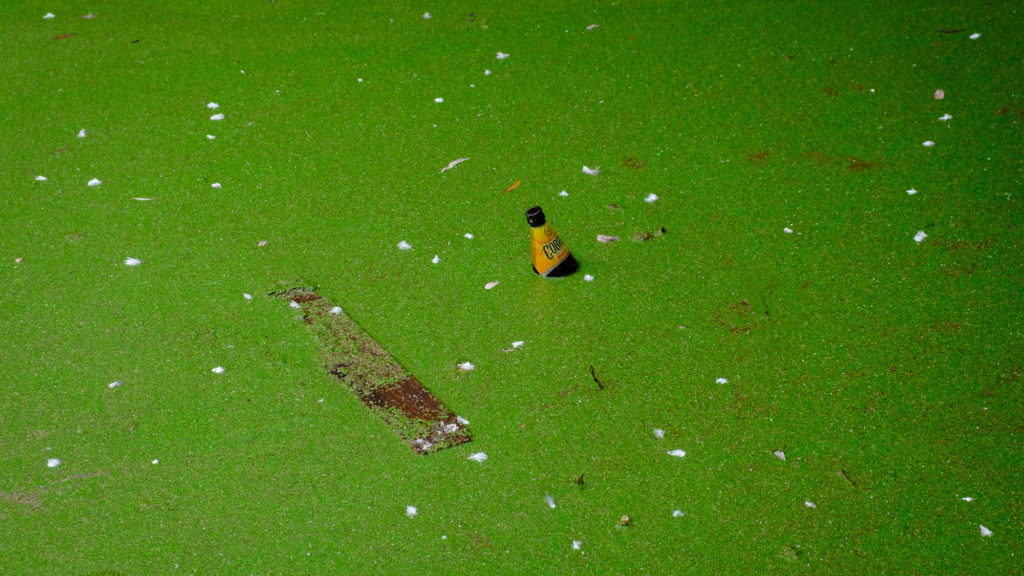As of 2016, we’d produced over 320 million tonnes of plastic and there was estimated to be 165 million tonnes of plastic circulating in seas and oceans. Not good considering plastics have only been around since 1950. Imagine how bad it will be if 320 has become 600 million tonnes by 2030. Will the seas then hold as much plastic as we have ever produced today? Will we be locked-out of sterile seas, lakes, rivers and canals?

Compelling scene found while walking the Thames in 2019.
Last April, 2019, I woke up to the news that the Israelis had failed in their attempt to land on the moon. My first thoughts were of the space littering problem that we need to address.
The Indians had recently shot down one of their own Earth orbit satellites creating at least 450 trackable pieces. The Chinese had done much the same in 2007 though when the Americans did something similar in 2008, they factored in getting the junk to burn up on re-entry to our atmosphere. This time, NASA were really upset with the Indians: the last thing they wanted is that a piece of debris would crash into something like the International Space Station. Imagine how much more junk that might create?
A rime of waste is building that threatens to prevent us leaving the planet or launching more satellites through the orbiting junk. There’s an estimate from January 2019 of more than 128 million pieces of debris smaller than 1 cm in orbit. A fleck of paint at 35,000 kilometres an hour packs a punch equivalent to a large calibre bullet.
Any piece of debris over 10 cm long can be tracked from the surface of the planet. One of the 34,000 such pieces currently being tracked could demolish an entire satellite or space station.
A halo of detritus could become a fitting epitaph for the failed effort’s of nearly 105,000,000,000 people who have ever lived on Earth. Who knows what visiting species from the other side of the universe or our descendants will make of our failure to address the problem?
Meanwhile, another 1000 satellites will go up to add to the 5,000 already there of which only 2,000 function. The recent success of the SpaceX launch all but guarantees more junk will head to space to lock us in. That’s in part because Elon Musk believes that we need another 42,000 near earth satellites to create his StarLink vision, independent internet access for all.
Of course, people like Musk have a point. If someone like Musk doesn’t provide alternative access to the current internet, the censorships of the governments of the world will have isolated themselves and excluded you. The authoritarians will have locked down the internet to preserve national securities. They will have won.
At the moment, those authoritarians are trying to convince you that atmospheric light pollution and debris and other issues are why people like Musk must be stopped. Quis custodiet ipsos custodes?
Imagine, the whole of humankind suffering from locked-out and/or locked-in syndrome. One way or the other or both, it or they might be inevitable.

Leave a Reply